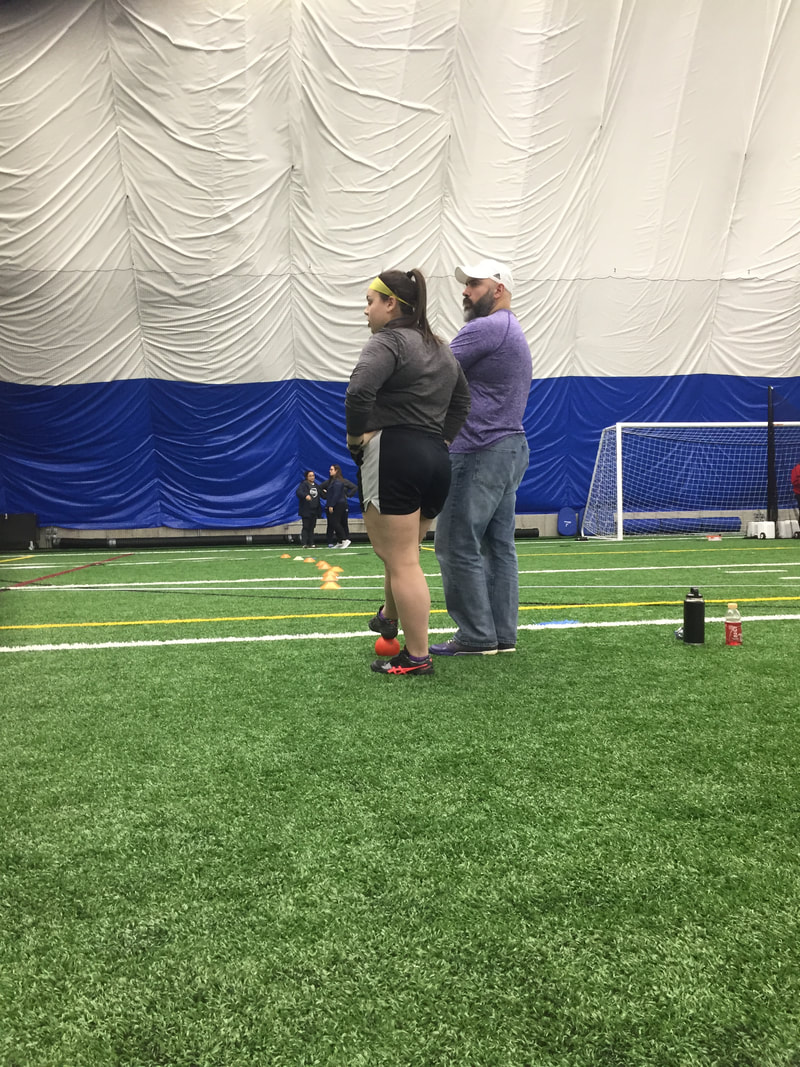|
When I first started coaching in 2004, I was tasked with coaching my friends. Most of the athletes on the SUNY Fredonia team at the time were my teammates from the season before. For the couple of senior throwers on the team at that time, we had a history together. I only had a couple of freshmen that season. I also had an athlete that decided he wanted throw, with no prior throwing experience.
For the athletes that I was teammates with in the past, I didn’t find it that difficult to coach them. Initially things went pretty well. It wasn’t until they didn’t throw as far as they wanted at the beginning of the season that we ran into a couple of problems. I found it difficult back then to have difficult conversations with my kids, especially since they were my previous teammates. I failed to lay out expectations for them. I didn’t ask them what they expected of me. It was difficult. It wasn’t difficult with the new throwers on the team. Tim, Nick, and I worked really well together that first season. The same can be said for Alex and Garrett. We had some good chemistry. It took until the outdoor season, but we finally figured each other out. It took time. It also took a lot of work on my part. I wasn’t sure where the proverbial line was. I didn’t treat them like my friends, however I did make some mistakes. First, I trained with the kids a couple of times a week. I wanted to continue my throwing career, and there were times where I wasn’t cognizant of what I was doing. I was taking away time from them to satisfy my needs. Second, I trained with them in the weight room too. I think they enjoyed training together. It added a little bit of intensity to what we were doing and what we were trying to accomplish in the circle. I made sure to speak to each thrower for a good amount of time at each practice. We only had five throwers my first season, so it was relatively easy to spend a lot of time with each thrower. We spoke about classes, course work, families, and what they wanted to do after graduating. I shared things about my personal life as well. At the time I thought it would show my vulnerability and that I was more than just a coach. I’ve discussed it before, but I was enrolled in grad school and was teaching full-time. I didn’t have a lot free time on my hands, but what I had I tried to dedicate as much as possible to them. Now, I begin each season with a discussion about expectations. You can read more about that in a previous article I wrote about expectations. I believe that the more time we spend sharing and discussing expectations gives everyone the opportunity to share what they want to get out of the season. More importantly it tells me what I need to do to help my athletes realize their dream(s) and vision, whatever they may be. The conversation also brings a sense of accountability. If either person in the coach-athlete dyad deviates from the expectation, it helps hold us to what was previously discussed. This part takes some time. It takes trust and a willingness by the coach to have these difficult conversations with their athletes. Now they may not always be difficult to have, but if you have an athlete that is not meeting their expectations, you as a coach need to know how to approach and begin the conversation. Some of my athletes prefer this type of conversation before we throw. Some after practice. Others can have a conversation during (but I prefer to not have that conversation during a throwing or lifting session). However, once your athletes know that you as a coach want them to reach their goals, it helps establish the relationship and make it stronger. Speaking about expectations also provides your athletes with some autonomy. It gives them a sense of control over the conversation, what they expect from their coach, and how they want to get to their destination. Autonomy is important. There is an abundance of literature out there about the relationship between autonomy supportive behaviors provided by the coach and athlete outcomes and performances. Athletes that perceive their coaches to provide more autonomy supportive behaviors feel more comfortable with their coach and tend to have more rewarding athletic experiences. As coaches, do you give your athletes an opportunity to be a part of the process? What would your athletes say about you? Would they perceive you to be autonomy supportive, or would they say that they don’t have a voice in deciding and/or planning out their athletic endeavors? As always, thanks for reading ~ Charles
0 Comments
Leave a Reply. |
Dr. Charles InfurnaCharles Infurna, Ed.D., is the owner and lead coach of Forza Athletics Track Club. Dr. Infurna has coached National Record Holders, National Champions, All-Americans, and Conference Champions at the Post-Collegiate, Collegiate, and High School level. Archives
January 2023
Categories |


 RSS Feed
RSS Feed